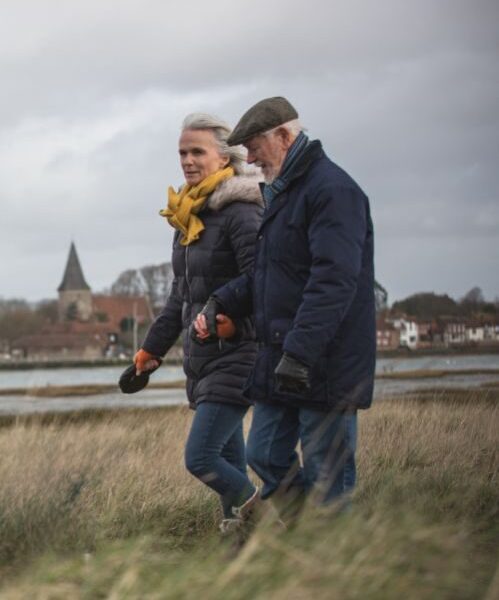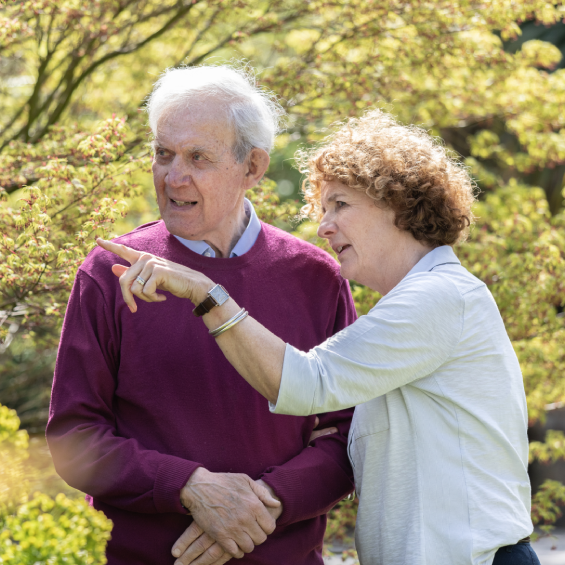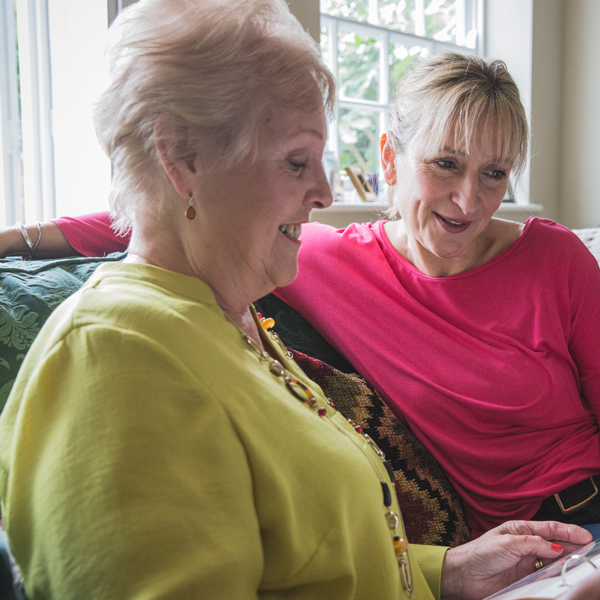Cold weather can affect anyone; however, older adults are particularly vulnerable to lower temperatures due to factors such as reduced circulation, a slower metabolism, and existing health conditions. Throughout the winter months, older individuals face an increased risk of falls and respiratory issues such as colds and flu. At Oxford Aunts, we are dedicated to ensuring that you or your loved one enjoys a safe and comfortable winter, while continuing to carry out daily tasks securely. The risks of cold weather for older people Winter weather can pose significant risks for older adults, as their reduced ability to regulate body temperature makes it more challenging to tolerate the cold. If their body temperature goes below 37°C, serious complications such as
Read more
As the colder months approach, it can be challenging to find the motivation to stay active due to the weather and darker evenings. However, staying active and engaging in enjoyable hobbies offers numerous benefits for your health and wellbeing. Thankfully, there are many activities that you or your loved ones can enjoy during the winter months. Our carers incorporate these to help ensure our clients remain safe and active, all within the comfort of their own homes. Activities for the elderly during winter Go for indoor walks If you feel the conditions outside are unsafe for your loved one, consider indoor spaces where they can move around, even if it means walking around the home every hour. If you have
Read more
The ageing population trend isn’t merely a concern for governments or healthcare institutions—it impacts every individual with elderly family members or loved ones, as well as those approaching their own golden years. Maintaining good health in older age extends far beyond medical treatments. It encompasses holistic care, ensuring comfort, independence, and vitality for all of life. Below, we present 8 invaluable tips and accompanying resources for people looking to provide the best care to their elderly loved ones. 8 tips for caring for an elderly person 1. Enlist help early on Caring for elderly parents is a significant responsibility that often becomes more demanding as they grow older. Their needs tend to evolve over time, adding complexity to the caregiving
Read more
Personal alarms (or panic alarms) are an indispensable solution for maintaining the safety and independence of older adults that live at home alone. These compact and wearable devices allow you to contact emergency assistance at the touch of a button. This can be life-saving for the elderly with mobility or frailty concerns that are at risk for falls. Choosing the right personal alarm is an important decision that shouldn’t be taken lightly. It’s important to diligently research any personal alarm before purchasing to make sure it can meet the needs of you and your loved ones. You may also want to discuss your options with a doctor or licensed physical therapist. How do panic alarms work? Panic alarms, usually worn
Read more
Dementia affects people in different ways and experiencing strong emotions like agitation, confusion and aggression are common. Although these behaviours can be challenging and distressing for family members and caregivers, it’s important to know why these behaviours occur and what you can do to help. Here you’ll learn what to do when a person with dementia is agitated, including plenty of tips from our dementia care experts. Agitation in dementia Agitation is a common and challenging behavioural symptom experienced by people living with dementia. It encompasses a range of distressing behaviours, including verbal or physical aggression, restlessness, and increased confusion. The brain of a person living with dementia undergoes changes that can lead to difficulties in communication and emotional regulation
Read more
Incorporating engaging activities into the daily lives of people with dementia can have a profound impact on their overall happiness and well-being. From creative pursuits and social interactions to virtual experiences online, these activities provide opportunities for cognitive stimulation, self-expression, and meaningful connection with others. Here are 32 activities for people with dementia designed to bring them joy and enhance their quality of life. Sensory stimulation activities Sensory boxes Creating a unique sensory box together is a great way to captivate the senses and encourage people with dementia to explore the world around them. Sensory or rummage boxes are boxes filled with a variety of textures, captivating scents, and intriguing objects. They can help people with dementia communicate or reminisce
Read more
Agitation, a distressing symptom commonly experienced by people living with dementia, can cause stress for both the person affected and their caregivers. But with the right person-centred approach and calming strategies, it’s possible to create a soothing environment that promotes a sense of calm and well-being. Drawing inspiration from our experienced caregivers and experts in the field, we’ve compiled a list of 10 proven methods to address agitation in people living with dementia. Each approach is tailored to provide a compassionate and person-centred approach, recognising the unique needs and challenges faced by those living with dementia. 1. Stay calm It can be upsetting when a loved one is feeling agitated or stressed and we can’t seem to meet or understand
Read more
If you or a loved one are having difficulties remembering to take your medication, a dosette box offers a practical and easy-to-use solution to medication management. Forgetting to take your medications or taking them incorrectly can have serious consequences for your health, especially for the older generation. In this short guide, we offer practical advice and guidance on how dosette boxes work and how you can use one to effectively manage medications. What is a dosette box? Medication management has grown increasingly complex over the years. Age UK estimates that around 1 in 5 adults in the UK are living with two or more complex conditions and that over half of people 75 years or older are taking five or more medications
Read more
Arthritis is one of the leading causes of pain and disability worldwide, especially for older adults. In the UK, millions of people have arthritis or other similar conditions that cause swelling and pain in the joints. Everyone experiences arthritis pain and symptoms differently depending on their own family history, lifestyle factors and the type of arthritis they have. Here we will answer important questions such as, “what is arthritis pain like?” so that you know the signs and symptoms to look out for when caring for a loved one or managing your own condition. What is arthritis? Arthritis is a common condition that causes swelling and tenderness in a joint. The most common symptoms of arthritis are joint pain and stiffness which
Read more













